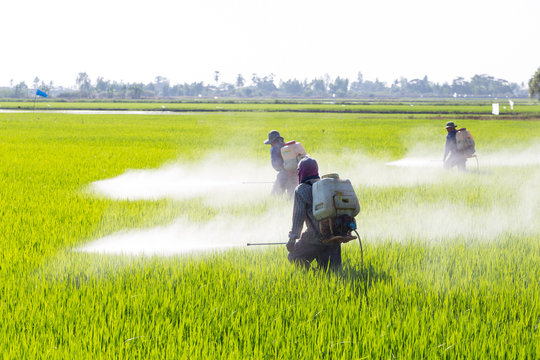Food Safety: Pesticides, commonly encountered in the consumption of our food, cast a pervasive shadow over the health of not only adults but also the most vulnerable members of our society for newborns and children. This insidious exposure arises from the integration of pesticides into the very sustenance that nourishes us. In addition to this dietary route, individuals working in diverse occupational settings, notably farms, find themselves in direct contact with these chemical agents. The repercussions of such exposure are in twofold: immediate acute poisoning and long-term chronic health complications.
Also Read: Miyazaki Mango: Farmer Cultivates World’s Most Expensive Mangoes in Odisha.

Food Safety
Unraveling the intricacies of pesticide exposure, health studies have extensively concentrated on individuals whose livelihoods intertwine with these chemicals are farm laborers and pesticide applicators. These individuals form the backbone of our agricultural systems, yet their close interaction with pesticides exacts a toll on their well-being. Symptoms indicative of acute organophosphate (OP) pesticide poisoning paint a stark picture of the hazards these workers face. Nausea, stomach cramps, diarrhea, dizziness, anxiety, and confusion constitute the array of debilitating symptoms that may ensue. Although the severity of these effects cannot be understated, their reversibility offers a glimmer of hope.
Beyond the immediate focus on those grappling with acute poisoning, an intriguing facet of pesticide exposure research has come to light. Investigations into groups of individuals who handle pesticides without succumbing to the acute symptoms have illuminated the concealed perils of chronic, low-dose exposure. These individuals, often working diligently in the backdrop, might not exhibit the alarming symptoms of their more acutely affected counterparts, yet the repercussions of their occupational engagement gradually manifest in insidious ways. Respiratory issues that undermine the vitality of the lungs, cognitive problems that cloud the clarity of thought, and skin ailments that mar the canvas of human flesh all stand as testaments to the intricate web of health struggles woven by chronic pesticide exposure.
As the tapestry of research unfolds, a daunting panorama of health risks emerges, showcasing the multifaceted burden borne by those subjected to chronic pesticide exposure. This burden extends beyond the realm of mere physical ailments and delves into the emotional and reproductive domains. Depressive shadows cast by chemical exposure dim the spark of human emotion, while the heart-wrenching specter of miscarriages and birth deformities pierce through the lives of those silently grappling with the consequences. Moreover, the sinister fingers of chronic exposure have been traced to cancerous growths, a revelation that compounds the already intricate tapestry of health implications. Even the realm of neurological health has not been spared, with conditions as debilitating as Parkinson’s disease traced back to the prolonged interaction with these chemical agents.
Also Read: Harnessing Satellite Technology: Harnessing Satellite Technology for Farming Advancements

Food Safety
The omnipresence of pesticides in our food not only engenders risks for individuals spanning all age groups but also ensnares workers in occupational settings in a complex web of acute and chronic health implications. While acute symptoms of pesticide poisoning may be reversible, the more insidious effects of chronic exposure manifest as an array of physiological, cognitive, emotional, and reproductive challenges. The trajectory of research underscores the imperative of continued investigation and awareness, advocating for safer practices and policies that prioritize both environmental sustainability and human health.
While fruits and vegetables undoubtedly offer vital nutrition and dietary diversity, the assertion that an exclusively organic diet directly translates to enhanced health benefits or disease protection lacks robust research backing. The purported health superiority of organic food remains largely unsubstantiated, with no concrete evidence to firmly establish its advantages over conventional counterparts. Nevertheless, the appeal of organic consumption extends beyond nutrition, encompassing reduced pesticide-related risks and a more environmentally sustainable agricultural approach, thus attracting individuals seeking holistic well-being and ecologically conscious dietary choices.
Also Read: Thrips Parvispinus: Management of New emerging Thrips species of Chilli









